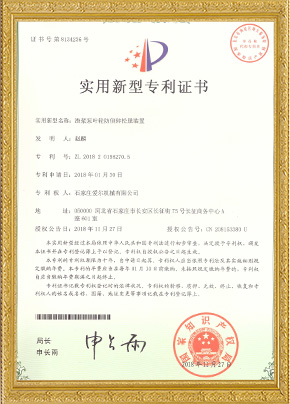Dec . 03, 2024 17:12 Back to list
Centrifugal Pumps for Sewage Treatment and Wastewater Management Solutions
The Importance of Sewage Centrifugal Pumps in Wastewater Treatment
Sewage disposal is a critical component of modern civil infrastructure, ensuring that waste is efficiently managed to protect public health and the environment. One of the key technologies employed in sewage treatment facilities is the centrifugal pump. These pumps play a vital role in moving wastewater through various stages of treatment, and understanding their operation and importance can shine light on their contribution to effective sewage management.
How Centrifugal Pumps Work
Centrifugal pumps operate based on the principles of centrifugal force. When wastewater enters the pump, it is directed into a rotating impeller. The impeller spins rapidly, causing the liquid to be drawn in and then propelled outward due to centrifugal force. This action increases the velocity of the sewage, allowing it to be pushed through pipes and into treatment systems. Unlike positive displacement pumps, which trap a fixed amount of fluid and force it forward, centrifugal pumps can handle large volumes of wastewater efficiently, making them particularly suitable for sewage management.
Applications in Wastewater Treatment
Centrifugal pumps are extensively used in various applications within sewage treatment facilities. They are used to transport raw sewage from collection points to treatment plants, circulate water within treatment systems, and discharge treated effluent back into water bodies or for reuse. Their versatility allows them to adapt to different flow rates and pressures, making them essential for maintaining the operational efficiency of treatment facilities.
Applications can range from municipal wastewater treatment plants, where large volumes of sewage must be processed, to industrial facilities that generate significant amounts of wastewater as a byproduct of production processes. In both cases, centrifugal pumps are crucial for ensuring that sewage can be processed quickly and effectively, preventing overflows and environmental contamination.
sewage centrifugal pump factory

Benefits of Centrifugal Pumps in Sewage Management
The benefits of utilizing centrifugal pumps in sewage systems cannot be overstated. First and foremost, they provide reliable performance under varying conditions. With the ability to handle solid content in the sewage, these pumps help minimize the risk of clogging that can disrupt treatment processes.
Additionally, centrifugal pumps are designed to be energy efficient, which is critical given the high energy demands of sewage treatment plants. Their relatively simple design also means lower maintenance costs and increased longevity, providing a cost-effective solution for wastewater management.
Moreover, advancements in pump technology, including the development of corrosion-resistant materials and smart monitoring systems, have further enhanced the performance and reliability of centrifugal pumps in harsh sewage environments.
Conclusion
As urban populations continue to grow, the demand for efficient sewage treatment systems becomes increasingly important. Centrifugal pumps stand at the forefront of this challenge, delivering effective and reliable pumping solutions that ensure wastewater is treated and managed appropriately. By facilitating the movement of sewage through treatment processes, these pumps not only protect public health but also mitigate environmental impacts. Investing in high-quality sewage centrifugal pumps is essential for any modern wastewater treatment facility aiming to achieve sustainability and efficiency in its operations. In summary, these unsung heroes of sewage management are crucial for a cleaner, healthier environment.
-
High Quality Slurry Pump Seals Reliable China Suppliers & Manufacturers
NewsJun.24,2025
-
High Quality Portable Submersible Slurry Pump Supplier & Manufacturer from China
NewsJun.10,2025
-
Slurry Pump Parts Manufacturer – High Quality Rubber Spare Parts from China
NewsJun.10,2025
-
High Quality 1/3 HP Submersible Sump Pump with Vertical - Reliable Supplier & Factory Price
NewsJun.10,2025
-
High-Efficiency Centrifugal Slurry Pumps India
NewsJun.10,2025
-
High Quality Warman Centrifugal Slurry Pump Suppliers & Factory
NewsJun.10,2025
